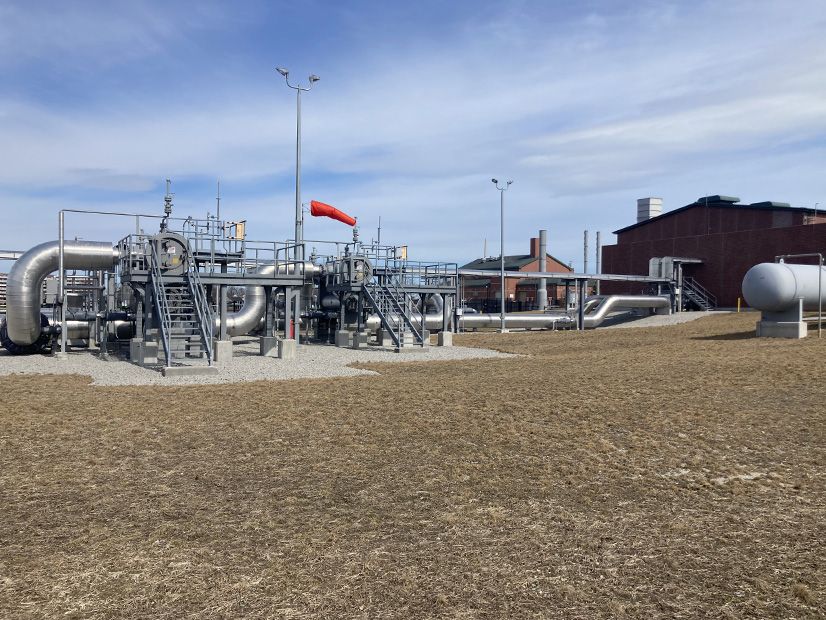The D.C. Circuit Court of Appeals dismissed a pair of challenges Friday to FERC’s authorization of the long-contested Weymouth, Mass., compressor station. The court determined that it lacks jurisdiction over the petitions, which were filed by a group of nearby residents to the compressor.
The ruling is the latest blow to the Fore River Basin residents and environmental justice organizations that have been fighting the compressor station for about nine years. The compressor became operational following FERC’s final authorization in September 2020.
One of the petitions challenged the FERC-issued Extension Order which gave Enbridge, the owner of the compressor station, additional time to build the project following delays to construction. The second petition asked the court to review FERC’s denial of rehearing of the In-Service Authorization Order (see FERC’s Handling of Environmental Justice Issues Debated in Court.)
“We lack jurisdiction to consider either petition, so we dismiss them both,” the D.C. Circuit wrote.
Opposition to the project has centered around the cumulative health consequences and acute dangers of siting the facility near residential neighborhoods and industrial facilities, including multiple fuel storage areas, the largest hazardous waste disposal site in New England, a natural gas plant and a chemical manufacturing facility.
To make matters even more precarious, opponents argue, the compressor station was built on a flood-prone parcel of landfill that juts out into the water and is contaminated with a mix of diesel fuel, arsenic and coal ash. Opponents of the compressor expressed disappointment in the court’s ruling.
“This is a demoralizing outcome that makes it clear that health and safety play second fiddle to fossil fuels and profit,” said Braintree Town Councilor Elizabeth Maglio, a vocal opponent of the compressor.
A 2019 background health analysis conducted by the state found that communities in areas surrounding the compressor site have elevated concentrations of conditions related to air pollution, including asthma, heart attacks, COPD, heart disease and lung and bronchus cancer.
Meanwhile, a 2002 health survey of Weymouth residents found higher-than-expected levels of aplastic anemia, a bone marrow condition linked to benzene, a pollutant frequently found in uncombusted natural gas in the Greater Boston area.
Michael Hayden of Morrison Mahoney LLP, the attorney representing local residents, told RTO Insider that while the Court held that there is no jurisdiction for the appeal, “the Court’s decision does not comment upon our environmental justice concerns or arguments.”
In consideration of the first petition, regarding the Extension Order, the D.C Circuit ruling did acknowledge that the petitioners had demonstrated injuries related to the compressor station’s siting, including from air pollution and increased safety risks. However, it said FERC already reconsidered the Extension Order, and ruled “the Fore River Residents have already received all of the procedural relief they requested.”
“While we’re disappointed, we are not exactly surprised,” said Alice Arena of Fore River Residents Against the Compressor Station, one of the petitioners in the case. “This was the same court that totally ignored the fact that FERC violated its own regulations in allowing the Weymouth compressor without an [environmental impact statement].”
Hayden said he was unsure if the defendants would pursue further challenges to FERC’s approval of the compressor station.
“We need to study it and determine whether there’s any further appellate action warranted,” Hayden said, noting there’s a trial scheduled in October before the Massachusetts Department of Environmental Protection on the compressor station’s Chapter 91 waterways license.




